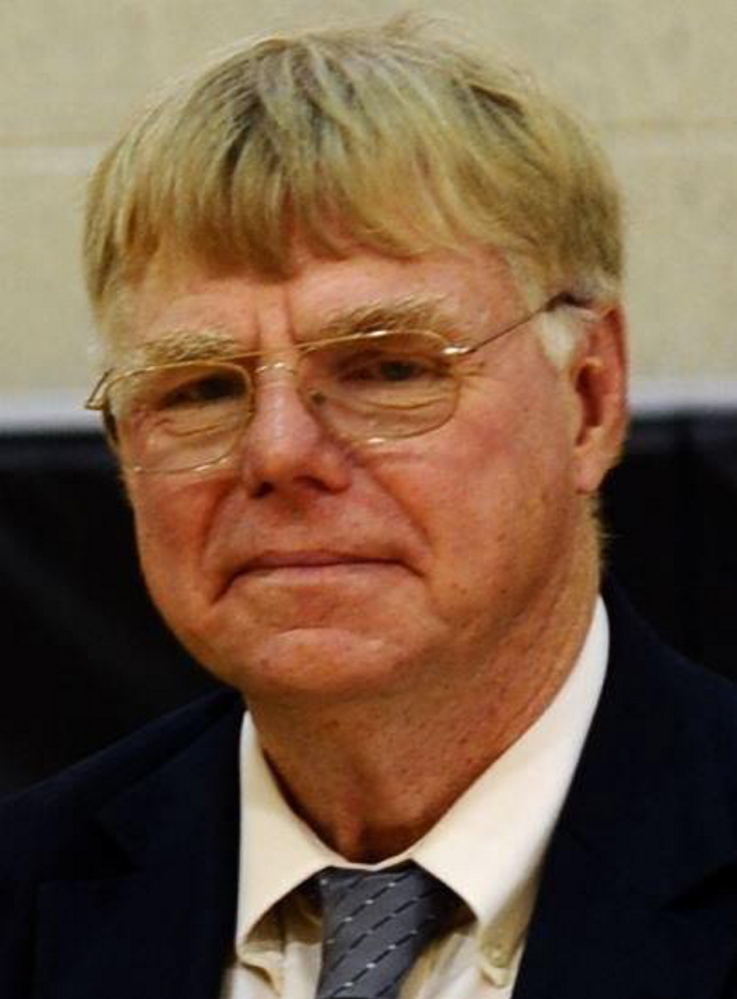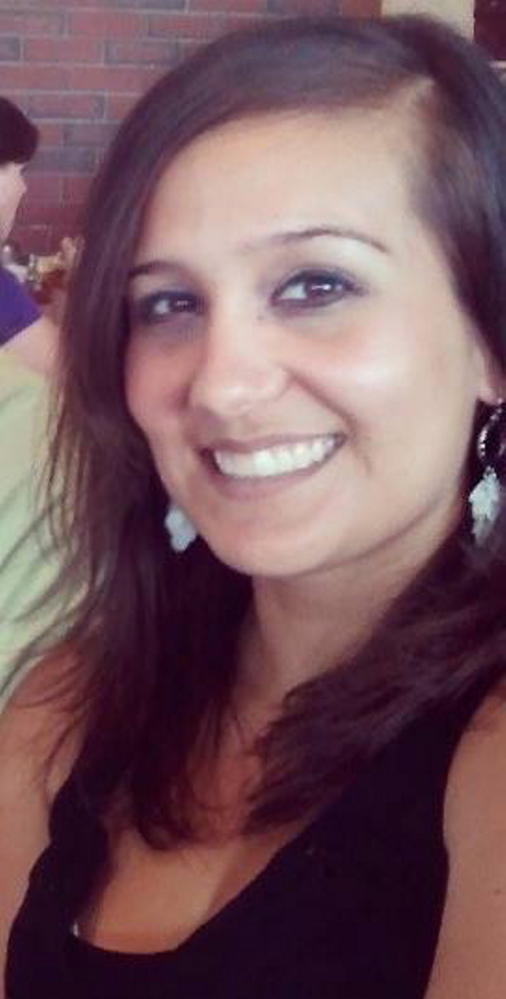SKOWHEGAN — Penobscot organizers who want Skowhegan schools to stop using the Indian image as a sports mascot said Tuesday they still want a small planning session with school officials before they agree to a larger community discussion.
Representatives of the state’s Wabanaki — the four tribes that make up Maine’s Indian population — said resistance to the change from the Skowhegan community comes from a misunderstanding of what the image means to the tribes and they hope to “foster a spirit of understanding.”
School Administrative District 54 Superintendent Brent Colbry said in an email to former Penobscot chief and Wabanaki acivist Barry Dana Friday that a promised meeting has been postponed because of media attention. Colbry said the issue has become a broader community issue and the public should be involved.
“We are sorry to hear of your recent change of heart,” Dana and Maulian Lorraine Smith, human resources director for Penobscot Indian Nation Enterprises/Federal Program Integrators, wrote in an email to Colbry on Monday. “We and the other native representatives had made plans and were very much looking forward to our informal, or some form of, get together.”
Dana and others who are advocating for the mascot to be changed said a smaller meeting is necessary before a community-wide one. John Bear Mitchell, of the University of Maine, agreed and has helped set up a structure and rules for such a meeting.
Colbry on Tuesday said he did not have a change of heart about the meeting, but that Dana told him his group needed more time to get organized, then the matter became public and got too big for a small group meeting.
“We haven’t ducked any meetings here,” Colbry said. “We haven’t been dragging our feet. The board didn’t think that format would be useful at this point. Many people in the community are saying ‘we don’t want the board to make this decision or any decision in isolation’ without seeking input from them.”
Colbry said the SAD 54 school board will probably not make any decision on meeting with tribal leaders until its next meeting March 5. SAD 54 comprises Canaan, Cornville, Mercer, Norridgewock, Skowhegan and Smithfield.
But Smith and Dana said they and others hoped that the current momentum will “foster a spirit of understanding and urgency in our two groups to be motivated to come together and work towards a solution to this problem.
“And I think we can both agree that it is a problem,” their Monday email said. “We feel strongly that there does exist a problem and putting it off will not bring resolution.”
Dana and others in the state, including Ed Rice, adjunct instructor for the New England School of Communications at Husson University and the University of Maine at Augusta’s Bangor campus, along with the Greater Bangor NAACP have said that the Indian image used by Skowhegan as a sports mascot should be removed. Such images and mascots have already been changed at many schools in Maine and across the nation as awareness has grown.
Those in the Skowhegan area supporting the mascot say it is a way of respecting the people who lived for centuries on the banks of the Kennebec River, which runs through Skowhegan. Many also say it is an important school tradition.
A Facebook page, “Keep Skowhegan the Indians,” was created Feb. 9, the same day the Morning Sentinel reported on the Bangor NAACP letter, and had generated more than 3,101 “likes” by Tuesday evening.
Colbry has said the American Indian imagery goes beyond the school and encompasses the town of Skowhegan and the history and heritage of the region.
But Dana, and others representing the Wabanaki — the umbrella name for Maine’s four tribes — said the concept of native heritage celebrated by American people is not shared by native people, considering “white people massacred, murdered and made and broke treaties with my Abnaki ancestors.”
“We are not mascots — native people are not mascots,” Dana said Feb. 9 after the Morning Sentinel reported that the Bangor chapter of the NAACP had called upon Skowhegan to stop the practice.
Dana said that along with the NAACP, “I have heard from many people on this issue who agree that institutionalized racism needs to end.”
Mitchell Tuesday agreed and said that “using Native Americans along with the associated images as mascots, logos and nicknames does the opposite of honor.”
“This dehumanization is to cast aside and ignore the hundreds of years of native struggles just to stay alive for our children and their children,” he said. “This issue is about power and who has control of that power.”
Mitchell is Wabanaki Center Outreach and Student Development Coordinator and University of Maine System Native American Waiver Coordinator. He said people who support use of Indian images and nicknames for sports teams believe that mascots aren’t racist because they themselves aren’t offended and that “tradition” often is used to defend the mascots.
“It has been the politics of this country to exterminate or enculturate native folks, and I don’t see how mascots can be a defense in the argument for keeping this going,” he said.
Smith added that Penobscots “understand that the Indian mascot is a part of the town and that it stands for very proud and positive things. However, we ask that you consider the fact that our sacred symbols, name, identity and essence of who we are is not a trivial matter.
“You cannot use our image and qualities for lucky tokens to win a ballgame with and then return to lives where you know nothing about what it actually means to be an Indian,” she said.
Dana said he and other members of the delegation are willing to work with Colbry on when and where a meeting can take place.
“I am willing to discuss and entertain ideas that the board sees as a positive way to move forward,” he said. “If, however, the board does not come up with a concrete plan in a reasonable time, then the tribes will need to discuss other options to initiate movement to resolve this matter.”
Mitchell said they will agree to meet with certain terms or conditions that he has discussed with Dana, including how many speakers would be included from each side of the issue and how long each could speak with an independent moderator maintaining rules of order.
The group also would need representatives of the Penobscot tribe and two Passamaquoddy villages, plus members from the band of Maliseet or band of Micmacs, and members of the media.
Kirk Francis, the current chief of the Penobscot Nation, and his vice-chief, Bill Thompson, did not immediately return calls Tuesday for comment.
The issue has been plaguing Skowhegan schools for years. In 2001, the school board rejected a move to change the name, but agreed to one American Indian symbol for the school. That discussion stemmed from a 1999 letter to the school from the American Indian Movement that asked the district to change it.
Last fall, Rice petitioned the school board to reconsider, and Colbry said a meeting would be held with those opposed to the mascot after the new year.
An editorial Friday in the Morning Sentinel and Kennebec Journal criticized school officials’ slow pace in addressing the issue. Colbry’s email to Dana putting off the meeting came later that day.
Doug Harlow — 612-2367
Twitter: @Doug_Harlow
Send questions/comments to the editors.





Comments are no longer available on this story